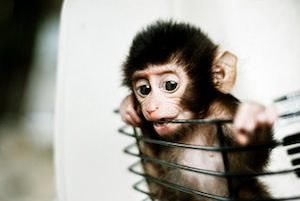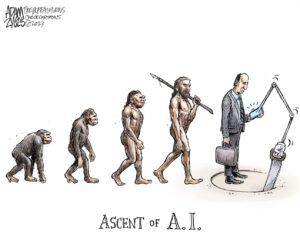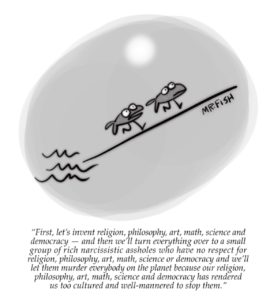Human Intelligence Peaked Millennia Ago, Scientist Speculates
Have we humans been getting dumber since we put down the hunting spear and picked up the trowel? Gerald Crabtree, a geneticist at Stanford University, believes so.
Have we humans been getting dumber since we put down the hunting spear and picked up the trowel? Gerald Crabtree, a geneticist at Stanford University, believes so.
In two articles published in the periodical Trends in Genetics, the scientist describes what The Guardian says might be called “a speculative theory of human intelligence.” The theory states that the arrival of agriculture, which enabled an ongoing explosion in the human population, removed environmental pressures that, in a hunting and gathering age, allowed only the smartest and most perceptive humans to live. In the 10,000 years that have passed since the agricultural revolution, populations have slowly accumulated genetic traits that would have led to the deaths of their possessors in prior ages.
Crabtree uses recent genetic studies to estimate that each human living today carries two or more mutations in a suite of 2,000 to 5,000 genes that form the basis of our intelligence. He judges that those mutations arose in the past 3,000 years.
All of this suggests homo sapiens reached their intellectual peak thousands of years ago. “We, as a species, are surprisingly intellectually fragile and perhaps reached a peak 2,000 to 6,000 years ago,” Crabtree writes. “If selection is only slightly relaxed, one would still conclude that nearly all of us are compromised compared to our ancient ancestors of 3,000 to 6,000 years ago.”
Crabtree’s hypothesis could go out the window and modern egos would be spared if other geneticists can show that the kind of evolutionary pressure upon which his theory is based is not necessary to preserve human intelligence.
— Posted by Alexander Reed Kelly.
Your support matters…The Guardian:
At the heart of Crabtree’s thinking is a simple idea. In the past, when our ancestors (and those who failed to become our ancestors) faced the harsh realities of a hunter-gatherer lifestyle, the punishment for stupidity was more often than not death. And so, Crabtree argues, enormous evolutionary pressure bore down on early humans, selecting out the dimwits, and raising the intellect of the survivors’ descendants. But not so today.
As Crabtree explains in the journal: “A hunter-gatherer who did not correctly conceive a solution to providing food or shelter probably died, along with his or her progeny, whereas a modern Wall Street executive that made a similar conceptual mistake would receive a substantial bonus and be a more attractive mate. Clearly extreme selection is a thing of the past.”
Independent journalism is under threat and overshadowed by heavily funded mainstream media.
You can help level the playing field. Become a member.
Your tax-deductible contribution keeps us digging beneath the headlines to give you thought-provoking, investigative reporting and analysis that unearths what's really happening- without compromise.
Give today to support our courageous, independent journalists.






You need to be a supporter to comment.
There are currently no responses to this article.
Be the first to respond.